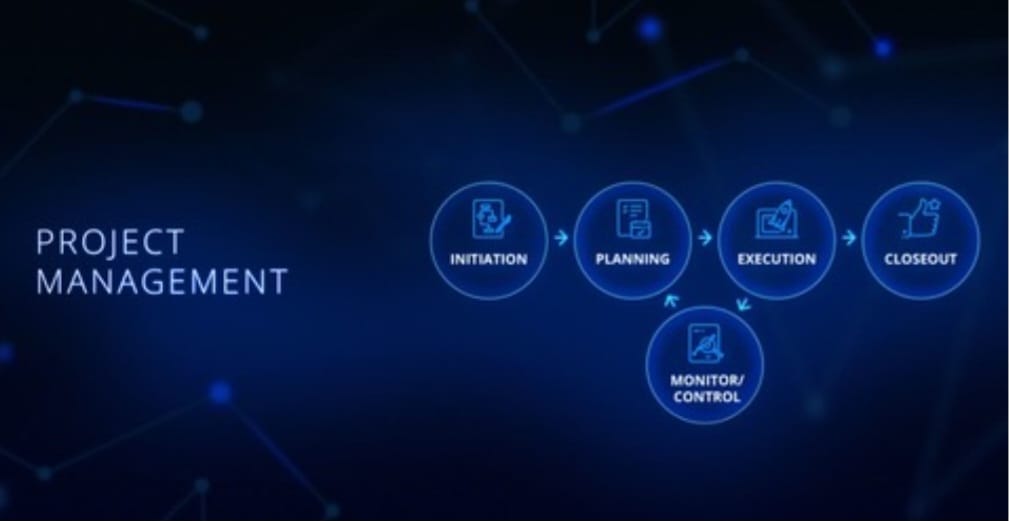Are you curious about the best high-paying skills to acquire in 2024? Uncertain about the ideal skill to pick up for the future? Where and how should I begin?
Not to worry! With this comprehensive guide, we hope to provide you with all the information you need to understand the top paying skills in 2024.
Prior to that, you have to understand that remaining ahead of the curve is essential for achievement. The need for high-paying talents has never been greater, regardless of your situation—you could be a student, recent college graduate, job seeker, or considering a career change.
We at The Narayanaas are aware of the varied goals that students pursue across the board. Additionally, we are dedicated to providing people with the skills necessary to succeed in the ever-changing employment market but also provide access to lucrative professions.
Thus, with a comprehensive roadmap, we will discuss the top 15 abilities that will be in highest demand in 2024.
What are High Income Skills?
High-income skills are those that can bring in a decent living since they are in high demand. These are typically specialist skills, and corporations are willing to pay highly for people with them.
These abilities might be viewed as important additions to your professional toolset that help you stand out to potential employers.
Qualities of High-Paying Careers:
The following are a few traits of the highest-paying skills:
Specialized Knowledge: Certain degrees of specialized knowledge or training are necessary for high-paying skills. This can be everything from knowledge of digital marketing tactics to fluency in a programming language.
Market Demand: The employment market is in need of these skills. Employers and industries are actively looking for people with these abilities since they are essential to the success of businesses.
Adaptability: In general, high-paying talents can be used to a variety of fields and positions. This implies that you become more useful and versatile as a result of your ability to apply these talents in a variety of circumstances once you have them.
Continual Learning: Due to their association with quickly developing industries such as digital marketing or technology, the majority of high-paying skills necessitate continual learning. Keeping abreast and growing your knowledge.
Top Demanding High-Income Skills:
1. AI (Artificial Intelligence):

The creation of computer systems that are capable performing activities that normally require human intelligence is known as artificial intelligence, or AI. Among these are making judgments, identifying patterns, comprehending natural language, and drawing lessons from experience.
Our everyday lives now revolve around technology, which we use in many ways without necessarily realizing it. For instance, ChatGPT, face recognition on social media, autonomous cars, smart reply in Gmail, recommendation engines on Netflix and Amazon, virtual assistants like Siri and Alexa, etc.
Some of the career in AI are:
- AI Consultant
- AI Trainer
- AI Software Developer
- AI System Architect
- AI Sales Engineer
- AI Infrastructure Specialist
- Data Scientist
- AI Research Scientist
- NLP (Natural Language Processing) Engineer…
Salaries for AI professionals in India
Average Salaries for Artificial Intelligence (AI) professionals in India vary based on experience, specific role, and location. Given the high demand for AI expertise across various industries, AI professionals often command competitive salaries. Here’s an overview of typical salary ranges for various AI roles in India:
AI/Machine Learning Engineer
- Entry-level: ₹500,000 – ₹800,000 per year
- Mid-level: ₹800,000 – ₹1,500,000 per year
- Senior-level: ₹1,500,000 – ₹3,000,000+ per year
Data Scientist
- Entry-level: ₹400,000 – ₹800,000 per year
- Mid-level: ₹800,000 – ₹1,600,000 per year
- Senior-level: ₹1,600,000 – ₹2,500,000+ per year
AI Research Scientist
- Entry-level: ₹600,000 – ₹1,000,000 per year
- Mid-level: ₹1,000,000 – ₹2,000,000 per year
- Senior-level: ₹2,000,000 – ₹3,500,000+ per year
Computer Vision Engineer
- Entry-level: ₹500,000 – ₹900,000 per year
- Mid-level: ₹900,000 – ₹1,700,000 per year
- Senior-level: ₹1,700,000 – ₹3,000,000+ per year
Natural Language Processing (NLP) Engineer
- Entry-level: ₹500,000 – ₹900,000 per year
- Mid-level: ₹900,000 – ₹1,800,000 per year
- Senior-level: ₹1,800,000 – ₹3,000,000+ per year
AI Consultant
- Entry-level: ₹600,000 – ₹1,000,000 per year
- Mid-level: ₹1,000,000 – ₹1,800,000 per year
- Senior-level: ₹1,800,000 – ₹3,000,000+ per year
AI Product Manager
- Entry-level: ₹800,000 – ₹1,200,000 per year
- Mid-level: ₹1,200,000 – ₹2,500,000 per year
- Senior-level: ₹2,500,000 – ₹4,000,000+ per year
AI/Data Analytics Manager
- Entry-level: ₹600,000 – ₹1,200,000 per year
- Mid-level: ₹1,200,000 – ₹2,500,000 per year
- Senior-level: ₹2,500,000 – ₹4,000,000+ per year
2. Blockchain:

Blockchain is a distributed ledger technology that operates on several computers and is decentralized. It securely logs transactions and prevents them from being changed in the past without changing all of the blocks that come before it and getting network consensus. The following are some essential qualities:
Decentralization: A blockchain is managed by a network of nodes, or computers, as opposed to a single entity, as is the case with traditional centralized databases.
Immutability: Data on the blockchain is permanent and impenetrable once it is recorded, making it very impossible to alter.
Transparency: Accountability and transparency are guaranteed by the public blockchain’s capacity to view transactions by everyone.
Security: Data is protected from fraud and hacking by cryptographic procedures.
Consensus Mechanisms: To reach a consensus, blockchains employ consensus algorithms (such as Proof of Work and Proof of Stake).
Why Blockchain Technology Is a Lucrative Skill:
Beyond cryptocurrencies like Ethereum and Bitcoin, blockchain technology has many more uses. Because of its potential to completely transform a number of industries, there is a great need for experts in this field. Why blockchain is a high-paying expertise is as follows:
Growing Demand: To improve security, transparency, and efficiency, blockchain technology is being adopted by a number of industries, including finance, real estate, healthcare, supply chain, and law. The demand for blockchain specialists is rising as a result of this expanding acceptance.
Specialized Knowledge: Blockchain development is a niche industry with few skilled practitioners since it necessitates a thorough grasp of distributed networks, smart contracts, and cryptography.
High Salary: Blockchain developers and specialists fetch high salaries because of the specialized skill set and growing demand. roles like blockchain developer, In the tech sector, blockchain consultants and engineers make some of the highest salaries.
Innovation and Entrepreneurship: New business models and innovative applications, such decentralized financing (DeFi), non-fungible tokens (NFTs), and decentralized apps (dApps), are made possible by blockchain technology. Blockchain-savvy businesspeople can launch new projects and draw large funding.
Prospect-Making: Blockchain experts are well-positioned for future career prospects and improvements as the technology develops and interacts with other cutting-edge fields like artificial intelligence (AI) and the Internet of Things (IoT).
Essential Blockchain Competencies:
Consider acquiring the following abilities to take advantage of blockchain’s high-income potential:
Programming Languages: Expertise in languages like Go, JavaScript, C++, Python, and Solidity (for Ethereum).
Knowing how to create and implement smart contracts, which are self-executing agreements with terms encoded directly into the code, is essential.
Understanding the cryptographic protocols and techniques that protect blockchain data is known as cryptography.
Blockchain Platforms: Knowledge of well-known blockchain systems such as Hyperledger, Ethereum, and Binance Smart Chain.
Decentralized Applications (dApps): The ability to create blockchain-based applications.
Understanding various consensus mechanisms, such as Delegated Proof of Stake (DPoS), Proof of Work (PoW), and Proof of Stake (PoS), is important for understanding consensus algorithms.
Blockchain Architecture: Understanding the various components that make up a blockchain network and their interactions.
Income for blockchain professionals in India
Average Income vary depending on experience, role, and location. While generally lower than in countries like the USA, Income in India for blockchain expertise are still quite competitive within the local job market. Here’s an overview of typical salary ranges for various blockchain roles in India:
Blockchain Developer
- Entry-level: ₹300,000 – ₹600,000 per year
- Mid-level: ₹600,000 – ₹1,200,000 per year
- Senior-level: ₹1,200,000 – ₹2,500,000+ per year
Blockchain Engineer
- Entry-level: ₹400,000 – ₹800,000 per year
- Mid-level: ₹800,000 – ₹1,500,000 per year
- Senior-level: ₹1,500,000 – ₹3,000,000+ per year
Blockchain Architect
- Mid-level: ₹1,200,000 – ₹2,000,000 per year
- Senior-level: ₹2,000,000 – ₹4,000,000+ per year
Smart Contract Developer
- Entry-level: ₹350,000 – ₹700,000 per year
- Mid-level: ₹700,000 – ₹1,300,000 per year
- Senior-level: ₹1,300,000 – ₹2,500,000+ per year
Blockchain Consultant
- Entry-level: ₹300,000 – ₹600,000 per year
- Mid-level: ₹600,000 – ₹1,200,000 per year
- Senior-level: ₹1,200,000 – ₹2,500,000+ per year
Blockchain Project Manager
- Entry-level: ₹500,000 – ₹800,000 per year
- Mid-level: ₹800,000 – ₹1,500,000 per year
- Senior-level: ₹1,500,000 – ₹2,500,000+ per year
Cryptocurrency Analyst/Trader
- Entry-level: ₹300,000 – ₹600,000 per year
- Mid-level: ₹600,000 – ₹1,200,000 per year
- Senior-level: ₹1,200,000 – ₹2,000,000+ per year
Blockchain Legal Expert
- Entry-level: ₹400,000 – ₹800,000 per year
- Mid-level: ₹800,000 – ₹1,500,000 per year
- Senior-level: ₹1,500,000 – ₹3,000,000+ per year
3. Data Analytics

A Data analyst is a specialist who gathers, organizes, and evaluates vast datasets using statistical methods in order to provide meaningful conclusions and aid in organizational decision-making. In order to help firms comprehend trends, patterns, and insights that can guide strategic decisions, data analysts play a critical role in data interpretation.
The duties of a data analyst
Data collection is the process of compiling information from multiple sources, including external datasets, databases, and web scraping.
Data cleaning is the process of eliminating errors and inconsistencies to ensure data quality.
Data analysis is the process of examining data to find patterns, correlations, and trends using statistical methods.
Data visualization: Producing graphs, charts, and other visual aids to effectively communicate research findings.
Reporting: Putting together presentations and reports to share findings with stakeholders.
Tool Proficiency: Using programs such as Tableau and Power BI for data visualization and tools like Excel, SQL, Python, and R.
How Data Analysis is a High-Income Skill in High Demand:
As data-driven decision-making becomes more and more important in sectors like technology, healthcare, retail, and finance, there is a high demand for qualified data analysts.
Flexible Skill Set: The use of data analysis abilities spans a number of domains, such as operations, product development, market research, and business intelligence.
Crucial to Business Success: Data analysts offer crucial insights that support companies in streamlining processes, enhancing client satisfaction, and boosting revenue.
Constant Learning and Development: The tools and techniques used in the data analysis industry are always evolving, making it a dynamic field. Professionals with high levels of expertise who keep up with current trends can fetch hefty wages.
Path to Higher Roles: Data analysts can work their way up to positions as analytics managers, data scientists, and data engineers, which offer higher earning potential.
Income of Data Analysts in India
Average Salaries for data analysts in India can vary based on experience, location, industry, and the size of the company. Here’s a general overview of the salary ranges for data analysts in India:
Entry-Level Data Analyst
- Income Range: ₹300,000 – ₹500,000 per year
Mid-Level Data Analyst
- Income Range: ₹500,000 – ₹1,000,000 per year
Senior-Level Data Analyst
- Income Range: ₹1,000,000 – ₹2,000,000+ per year
4. Data Science

Data science is an interdisciplinary area that extracts knowledge and insights from both structured and unstructured data using scientific methods, algorithms, processes, and systems. To comprehend and analyze complicated data sets, it uses a variety of methods from machine learning, artificial intelligence, statistics, and data analysis.
Elements that make up data science:
Data collection: Compiling unprocessed data from different sources.
Data cleaning is the process of preprocessing data to eliminate or fix errors.
Data Exploration & Visualization: Understanding data patterns and relationships through statistical techniques and graphical tools is known as data exploration and visualization.
Machine Learning: Utilizing algorithms to create prediction models is known as machine learning.
Interpreting the data: Making inferences and learning from the analysis.
Deployment: Making data-driven decisions by putting the data models into practice in actual situations.
Why Data Science Is a High-Paying and in-Demand Skill?
Data scientists are needed by businesses in all sectors to extract meaningful insights from massive amounts of data, as big data is growing at an exponential rate.
Versatile Applications: Data science is a widely sought-after career because of its versatility and applicability in a wide range of industries, including finance, healthcare, marketing, e-commerce, and technology.
Essential to the Success of Your Business: Data scientists play an essential role in helping businesses make well-informed decisions, optimize operations, enhance customer experiences, and gain a competitive edge.
Cutting-Edge Technology: Data scientists are highly valued for their skill set since they deal with cutting-edge technology like big data analytics, AI, and machine learning.
Route to Leadership Positions: Skilled data scientists frequently advance into higher-paying positions as chief data officers, data science managers, and other
Income of Data Scientists in India
Average Salaries for data scientists in India can vary significantly based on factors like experience, location, industry, and the size of the organization. Here’s an overview of typical salary ranges for data scientists in India:
Entry-Level Data Scientist
- Income Range: ₹500,000 – ₹800,000 per year
Mid-Level Data Scientist
- Income Range: ₹800,000 – ₹1,500,000 per year
Senior-Level Data Scientist
- Income Range: ₹1,500,000 – ₹3,000,000+ per year
Data Science Manager/Director
- Salary Range: ₹2,500,000 – ₹5,000,000+ per year
5. Digital Marketing

Digital marketing is the use of digital platforms and technologies to promote goods, services, or brands. In order to reach and interact with target audiences online, it includes a broad variety of methods and tactics. Among the essential elements of digital marketing are:
SEO: Optimizing website content to appear higher in search engine results is known as search engine optimization, or SEO.
Content Marketing: The process of producing and disseminating worthwhile information in order to draw in and hold on to a specific audience.
Social media marketing is the practice of promoting items and interacting with customers on social media platforms.
Email marketing: Targeted email campaigns sent to clients and potential clients.
Pay-Per-Click (PPC) Advertising: Using social media and search engines to display sponsored advertisements.
Affiliate marketing is the practice of collaborating with affiliates to market goods and receive commissions.
Influencer Marketing: Working together with influencers to reach a larger audience is known as influencer marketing.
Analytics and Data Analysis: Measuring and optimizing marketing performance using data.
How Digital Marketing is a High-Income Skill?
The rising reliance of businesses on digital platforms for customer outreach has resulted in a high demand for skilled digital marketers, making them a high-income skill.
Cost-Effectiveness: Since digital marketing makes it more affordable for companies to reach a worldwide audience, salaries and budgets for digital marketing positions have increased.
Measurable Outcomes: Digital marketing is essential for business expansion since it allows for the tracking and evaluation of campaign efficacy, which raises the demand for qualified personnel.
Versatility: Digital marketing expertise is useful in a range of sectors, including technology, healthcare, and e-commerce in addition to retail and e-commerce.
Continuous Evolution: As new platforms and technologies are introduced, the field continues to develop, providing chances for lifelong learning and professional growth.
Route to Leadership Positions: Skilled digital marketers can progress to more senior positions include chief marketing officer (CMO), head of digital marketing, and manager of digital marketing.
Working together with influencers to reach a larger audience is known as influencer marketing.
Analytics and Data Analysis: Measuring and optimizing marketing performance using data.
What is Digital Marketing?
Digital Marketing involves promoting products, services, or brands using digital channels and technologies. It encompasses a wide range of strategies and tactics to reach and engage target audiences online. Key components of high income of digital marketing include:
- Search Engine Optimization (SEO): Optimizing website content to rank higher in search engine results.
- Content Marketing: Creating and distributing valuable content to attract and retain a target audience.
- Social Media Marketing: Using social media platforms to promote products and engage with customers.
- Email Marketing: Sending targeted email campaigns to prospects and customers.
- Pay-Per-Click (PPC) Advertising: Running paid ads on search engines and social media platforms.
- Affiliate Marketing: Partnering with affiliates to promote products and earn commissions.
- Influencer Marketing: Collaborating with influencers to reach a wider audience.
- Analytics and Data Analysis: Using data to measure and optimize marketing performance.
How Digital Marketing is a High Income Skill
- High Demand: Businesses increasingly rely on digital channels to reach customers, creating a high demand for skilled digital marketers.
- Cost-Effectiveness: Digital marketing offers a cost-effective way for businesses to reach a global audience, leading to higher budgets and salaries for digital marketing roles.
- Measurable Results: The ability to track and measure the effectiveness of campaigns makes digital marketing crucial for business growth, increasing the value of skilled professionals.
- Versatility: Digital marketing skills are applicable across various industries, from retail and e-commerce to technology and healthcare.
- Constant Evolution: The field continuously evolves with new technologies and platforms, offering opportunities for continuous learning and career advancement.
- Path to Leadership Roles: Experienced digital marketers can advance to higher roles such as digital marketing manager, head of digital marketing, or chief marketing officer (CMO), which offer higher earning potential.
Income of Digital Marketers in India
The average income for digital marketing specialists in India varies according to function, industry, region, and experience. The following summarizes the normal wage ranges in India for digital marketers:
Entry-Level Digital Marketer
- Income Range: ₹300,000 – ₹500,000 per year
Mid-Level Digital Marketer
- Income Range: ₹500,000 – ₹1,200,000 per year
Senior-Level Digital Marketer
- Income Range: ₹1,200,000 – ₹2,500,000+ per year
Digital Marketing Manager
- Income Range: ₹800,000 – ₹2,000,000 per year
Head of Digital Marketing/Director
- Income Range: ₹2,000,000 – ₹5,000,000+ per year
6. Ethical Hacking

In order to evaluate an organization’s defenses, ethical hacking—also referred to as penetration testing or white-hat hacking—involves breaking into computers and other devices lawfully. With the consent of the target company and with the goal of enhancing security, ethical hackers employ the same methods and resources as malevolent hackers. The primary objectives are to locate weaknesses, evaluate the likelihood of possible exploits, and offer suggestions for improving security protocols.
Principal Duty of Ethical Hackers
Vulnerability Assessment: Finding and assessing security flaws in networks, applications, and systems is known as vulnerability assessment.
Penetration testing is the process of modeling cyberattacks to evaluate how well security measures work.
Security audits: Examining security setups, policies, and processes to make sure they adhere to standards.
Incident Response:Helping in the investigation and remediation of security breaches is known as incident response.
Security Advice: Offering direction on resolving vulnerabilities and enhancing general security posture.
Why Ethical Hacking Is a Lucrative Skill
High Demand: Due to the increase in cyber risks, businesses are spending more money on cybersecurity to safeguard their systems and data, which has increased demand for ethical hackers.
Protecting an organization’s digital assets is a critical job for ethical hackers, which makes their expertise extremely important.
Specialized Knowledge: Proficient understanding of programming, networking, and cybersecurity is necessary for ethical hacking. These skills are highly specialized and uncommon.
Security is Always Needed: New vulnerabilities appear in technology as it develops, which means that ethical hacking expertise is always in demand.
Regulatory Compliance: The need for ethical hackers is increased by the requirement for frequent security audits and adherence to regulations such as GDPR, PCI-DSS, and ISO 27001.
Path to Leadership Roles: With more income potential, seasoned ethical hackers can work their way up to positions like Chief Information Security Officer (CISO), security consultant, and cybersecurity manager.
Income of Ethical Hackers in India
In India, the pay scale for ethical hackers varies according to experience, sector, region, and business size. The following summarizes the normal wage ranges in India for ethical hackers:
Entry-Level Ethical Hacker
- Income Range: ₹300,000 – ₹500,000 per year
Mid-Level Ethical Hacker
- Income Range: ₹500,000 – ₹1,200,000 per year
Senior-Level Ethical Hacker
- Salary Range: ₹1,200,000 – ₹2,500,000+ per year
Ethical Hacking Consultant
- Income Range: ₹800,000 – ₹2,000,000 per year
Chief Information Security Officer (CISO)
- Income Range: ₹2,000,000 – ₹5,000,000+ per year
7. Full Stack Web Development

Developing online applications’ front-end (client-side) and back-end (server-side) components is known as full stack web development. A Full Stack Web Developer is skilled in the front-end (presentation layer), back-end (logic layer), and database layers of web development.
Key Responsibilities of Full Stack Web Developers
Front-end development is the process of creating a user interface with JavaScript frameworks (such as React, Angular, and Vue.js) and technologies like HTML and CSS.
Back-end development involves utilizing frameworks like Django, Flask, Ruby on Rails, and Express along with languages like Python, Ruby, Java, PHP, and Node.js to create server-side logic.
Database management includes both NoSQL (MongoDB) and SQL (MySQL, PostgreSQL) database design and management.
API development:Developing and using RESTful APIs to link front-end and back-end components is known as API development.
Version Control: Version control and collaboration can be achieved with technologies such as Git.
Hosting and Deployment: Hosting and deploying web apps on servers, including AWS, Azure, and Heroku.
The Reasons Why Full-Stack Web Development Is a High-Profit Talent
Extensive Skill Set: Employers value full stack developers because of their broad skill set, which encompasses both front-end and back-end programming.
High Demand: Full stack developers are in high demand due to the growing requirement for online applications across all industries.
Cost-Effectiveness: Employing full-stack developers can save businesses money because they can manage several development facets and eliminate the requirement for specialist positions.
Innovation and Agility: Full stack developers are essential for startups and agile teams since they can quickly prototype and create new functionalities.
Career Advancement: Possessing full stack programming skills will help you go into more lucrative positions like CTO, technical architect, and lead developer.
Income of Full Stack Web Developers in India
Full stack web developers in India make different salaries depending on their sector, region, level of expertise, and size of organization. The following summarizes the normal compensation ranges in India for full stack web developers:
Entry-Level Full Stack Developer
- Income Range: ₹300,000 – ₹600,000 per year
Mid-Level Full Stack Developer
- Income Range: ₹600,000 – ₹1,200,000 per year
Senior-Level Full Stack Developer
- Income Range: ₹1,200,000 – ₹2,500,000+ per year
Lead Full Stack Developer/Architect
- Income Range: ₹1,500,000 – ₹3,500,000+ per year
8. Project Management

Planning, carrying out, and supervising projects to accomplish particular objectives within predetermined parameters like resources, time, and money are all part of project management. It calls for managing teams, assigning and completing tasks, and making sure that project goals are reached successfully and economically. Important project management components consist of:
Initiation:Establishing the project’s goals, scope, and viability is the first step.
Planning: Creating thorough timetables, budgets, and plans for projects.
Execution: Organizing personnel and materials to carry out the project’s schedule.
Monitoring and controlling include keeping tabs on the status of the project, handling modifications, and making sure its objectives are met.
Closure: Bringing the project to a successful conclusion, including documentation and post-project assessment.
The Reasons Project Management Is a High-Profit Ability
High Demand Across businesses: A variety of businesses, including IT, construction, healthcare, finance, and manufacturing, require project management expertise.
Essential to Business Success: Good project management is essential to the success of organizations because it guarantees that projects are finished on schedule, on budget, and with the appropriate quality.
complicated Problem-Solving: Project managers need a high degree of skill to handle complicated tasks, negotiate obstacles, and make smart judgments.
Leadership and Coordination: Project managers are paid more for their critical abilities, which include managing stakeholders, leading teams, and coordinating efforts.
Certification Value:Professional credentials that increase earning potential and bring substantial value include PRINCE2, ScrumMaster, and PMP (Project Management Professional).
Career Advancement: Possessing project management abilities will help you get promoted to executive positions and higher jobs like portfolio manager and program manager.
Salaries of Project Managers in India
The complexity of the projects managed, industry, location, and experience all affect project managers’ salaries in India. The following summarizes the normal salary ranges in India for project managers:
Entry-Level Project Manager
- Income Range: ₹500,000 – ₹800,000 per year
Mid-Level Project Manager
- Income Range: ₹800,000 – ₹1,500,000 per year
Senior-Level Project Manager
- Income Range: ₹1,500,000 – ₹2,500,000+ per year
Program Manager/Portfolio Manager
- Income Range: ₹1,800,000 – ₹3,500,000+ per year
9. Sales

The process of selling products or services to clients is referred to as sales. It entails locating possible clients, learning about their requirements, putting together offerings that satisfy those needs, haggling over terms, and sealing agreements. Salespeople are essential to a company’s ability to make money.
Principal Duty of Sales Professionals
Prospecting:Finding and getting in touch with possible clients or consumers is known as prospecting.
Needs assessment: Determining the precise requirements and problems that potential customers face.
Product Presentation: Outlining how goods and services can satisfy the needs of the consumer.
Negotiation: Talking about terms and conditions, such as contracts and prices.
Finalizing agreements and making sure the transaction is finished are known as closing sales.
Customer relationship management is the process of preserving and fostering connections with current clients in order to promote referrals and repeat business.
Market research is the process of keeping abreast of consumer preferences, competitive activity, and market developments.
How High-Income Skill Sales Can Be
Direct Impact on income: Salespeople play a crucial part in the success of businesses since they are directly in charge of producing income.
Performance-Based Compensation: A lot of sales positions provide bonuses and commissions based on performance, enabling top achievers to make a lot more money.
Demand Across Industries: There is a constant need for qualified salespeople since every business depends on these individuals to market and close deals on goods and services.
Transferable abilities: Professionals can transition between different businesses and professions thanks to their strong transferable abilities in sales.
Career Advancement: Salespeople with success can move up to more lucrative positions like vice president of sales, regional sales director, and sales manager.
Essential Soft Skills: Problem-solving, communication, and negotiating are just a few of the essential soft skills that sales roles foster and are useful in a variety of upper-level jobs.
Income of Sales Professionals in India
In India, sales professionals earn a wide range of salaries depending on their function, region, sector, and level of expertise. The following summarizes the normal wage ranges in India for sales roles:
Entry-Level Sales Representative
- Income Range: ₹250,000 – ₹500,000 per year
Mid-Level Sales Executive
- Income Range: ₹500,000 – ₹1,000,000 per year
Senior Sales Executive/Manager
- Income Range: ₹1,000,000 – ₹2,500,000 per year
Sales Director/VP of Sales
- Income Range: ₹2,500,000 – ₹5,000,000+ per year
10. Cybersecurity

Cybersecurity is the defense against online threats, illegal access, theft, and damage to networks, systems, and data. It includes a range of procedures and tools intended to protect data and guarantee its availability, integrity, and confidentiality.
Principal Duty in Cybersecurity
Threat detection is the process of locating potential security risks and weaknesses and taking appropriate action.
Incident Response:Managing and minimizing security lapses and occurrences is known as incident response.
Risk management is the process of identifying and controlling risks to lessen the consequences of security breaches.
Security Policies and Procedures:The process of creating and implementing security protocols, rules, and procedures.
Access Control:Managing and restricting access to data and systems is known as access control.
Compliance and Auditing: Making sure security rules are followed and carrying out frequent security audits.
Data protection and encryption: To secure sensitive information, use data protection and encryption techniques.
Security Training and Awareness:Teaching staff members and other stakeholders about cybersecurity best practices is known as security awareness and training.
Why Cybersecurity Is a High-Paying Talent
High Demand: There is a significant need for qualified cybersecurity specialists due to the rise in the frequency and sophistication of cyberattacks.
Critical Role: Cybersecurity plays a crucial role for businesses and organizations as it protects sensitive data and upholds confidence.
Specialized Knowledge: Cybersecurity necessitates a specific understanding of networks, IT systems, and security standards, which makes these abilities extremely valuable.
Constant Evolution: There is a constant need for up-to-date knowledge in the cybersecurity industry because it is dynamic and new threats are always developing.
Regulation Compliance: Demand for cybersecurity specialists is driven by the need for many companies to adhere to strict security standards, such as GDPR, HIPAA, and PCI-DSS.
Path to Leadership Roles: Having experience in cybersecurity can help you advance into more lucrative positions like Chief Information Security Officer (CISO), security consultant, and manager.
Income of Cybersecurity Professionals in India
In India, compensation for cybersecurity specialists varies according to experience, region, sector, and job title. The following summarizes the normal compensation ranges in India for cybersecurity roles:
Entry-Level Cybersecurity Analyst
- Income Range: ₹400,000 – ₹800,000 per year
Mid-Level Cybersecurity Specialist
- Salary Range: ₹800,000 – ₹1,500,000 per year
Senior-Level Cybersecurity Expert
- Income Range: ₹1,500,000 – ₹3,000,000+ per year
Cybersecurity Manager/Consultant
- Income Range: ₹1,800,000 – ₹4,000,000+ per year
Chief Information Security Officer (CISO)
- Income Range: ₹3,000,000 – ₹7,000,000+ per year
Which skill gives the highest salary?
Top 10 High-Income Skills to Learn in 2024 to Make a Six-Figure…
Artificial Intelligence and Machine Learning.
Cybersecurity.
Cloud Computing.
Data Science and Big Data Analytics.
Blockchain Technology.
Internet of Things (IoT)
Quantum Computing.
UI/UX Design.
Which job pays 10 lakh per month in India?
Experienced Artificial Intelligence Engineer get pay more than 10 LPA per month in India.


[…] Between Data Science and Artificial Intelligence are the topics that have received a lot of attention in the age of digital transformation. Both […]
[…] Jobs are highest paying will be marked by dramatic changes brought about by developments in technology, prevailing economic […]